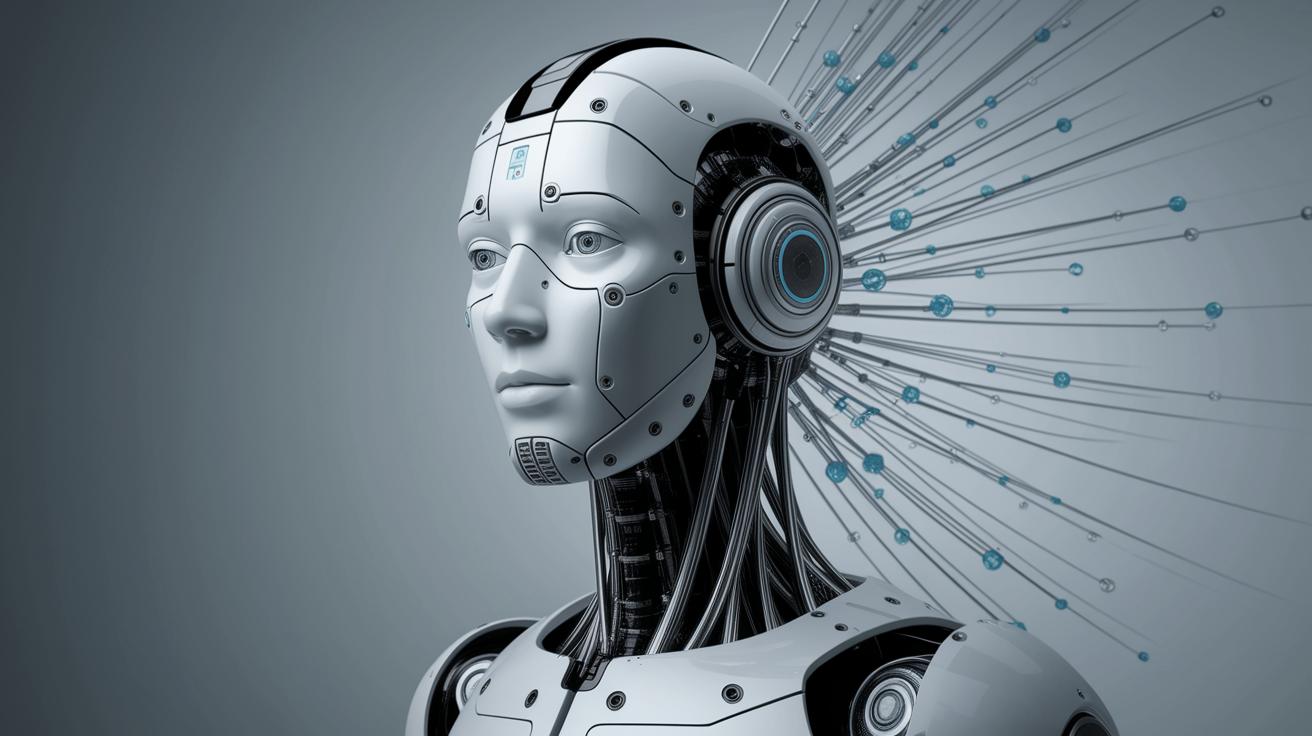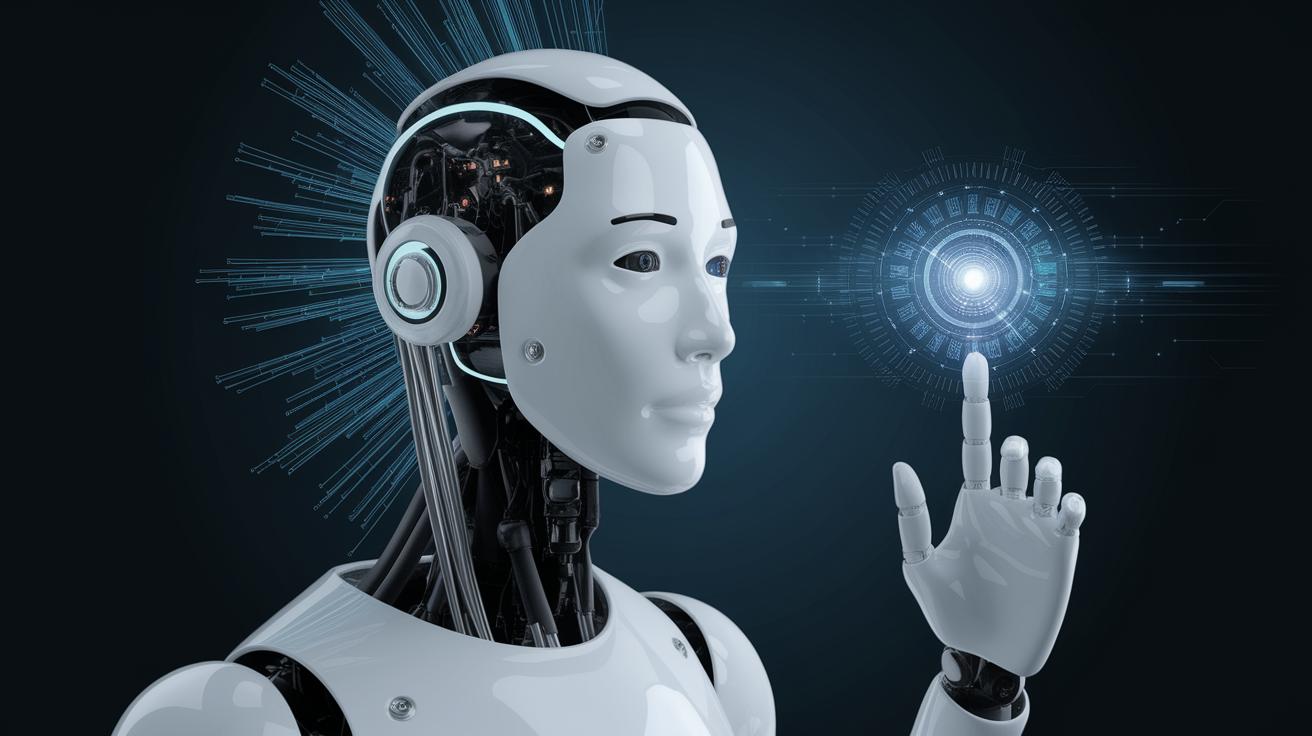Abstract
This blog post explores the transformative impact of AI-powered machines on healthcare. From diagnostics and treatment to patient care and population health management, artificial intelligence (AI) is redefining the landscape of medical services. The article delves into AI’s role in diagnosis accuracy, precision medicine, population health, and personalized patient care, along with the ethical considerations and future implications of these advancements. Through a comprehensive analysis, we highlight the potential of AI to enhance healthcare delivery, identify challenges, and explore the legal and ethical nuances of AI integration in medical practice. An overview of materials, methods, results, and a synthesis of learnings encapsulate the essence of this AI-driven healthcare revolution.
Introduction
Introduction
AI-powered machines have ingrained themselves into the core of various sectors, with healthcare witnessing significant revolutionary changes. From patient records and diagnostic imaging to surgical procedures and treatment protocols, AI is setting new standards. Its unmatched ability to process and analyze massive data sets introduces a wave of efficiency and accuracy previously unattainable in clinical environments. Furthermore, the integration of AI stands to enhance the overall patient care experience.
Research Significance
The ongoing advancements in AI have positioned it as a pivotal player in healthcare innovation. By reducing errors, enhancing diagnosis speeds, and personalizing treatments, AI provides a flexible framework that molds itself to the specific needs of patients and practitioners alike. This significance extends to the potential reduction of operational costs, contributing to a more efficient healthcare system where resources are judiciously utilized.
Materials and Methods
Materials and Methods
To gain a comprehensive understanding of AI’s impact on healthcare, a systematic review of current literature and case studies was conducted. This involved gathering data from peer-reviewed journals, reputable websites, and healthcare technology reports, ensuring an inclusive perspective on how AI applications are being developed and implemented.
Search strategy and inclusion
The search strategy was crafted to include synonymous terms and relevant keywords to ensure exhaustive coverage of the topic. The inclusion criteria were focused on recent publications, ensuring the data reflects current AI utilization trends and developments in healthcare technology.
Databases search protocol and keywords
Major databases such as PubMed, Google Scholar, and IEEE Xplore were queried using keywords including “AI in healthcare,” “AI diagnostics,” “precision medicine,” and “AI patient care.” Search filters were applied to focus on publications within the last five years, honing in on the most relevant and recent advancements.
Data extraction
Data extraction involved filtering results based on relevance, credibility, and pertinence to AI technologies’ contributions to healthcare. Selected articles were evaluated for insights into practical applications, ethical considerations, and the evolution of AI systems in various healthcare settings.
Results
Results
The results highlight multiple sectors within healthcare where AI has demonstrated considerable advancements. AI systems have shown their prowess in improving diagnostic accuracy, expediting the decision-making process in clinical environments, and tailoring personalized treatment plans, all contributing to enhanced patient outcomes.
Conclusion
The convergence of AI technology within healthcare indicates a profound shift in medical paradigms, promising improved patient experiences and more efficient healthcare systems. This trajectory indicates not only potential improvements in individual health outcomes but also a broader impact on public health management and policy formulation.
AI assistance in diagnostics
Diagnosis accuracy
AI algorithms excel in pattern recognition within massive datasets, aiding in early detection of diseases by analyzing medical images, lab results, and historical data. Machine learning models have proven instrumental in enhancing diagnosis accuracy, surpassing human capabilities in various instances, ensuring diseases are caught at more treatable stages.
AI in genomic medicine
The integration of AI in genomic medicine has led to personalized diagnostic approaches. By identifying gene variations that predispose individuals to specific health conditions, AI-powered systems enable predictive diagnostics that inform preventative healthcare strategies, offering patients bespoke care pathways aligned with their unique genetic profiles.
AI assistance in treatment
Precision medicine and clinical decision support
AI advancements contribute to the precision medicine paradigm, ensuring treatments are closely tailored to individual patient profiles. These systems use sophisticated algorithms to assist clinical decision-making, identifying optimal therapeutic strategies while accounting for patient-specific variables and enhancing treatment efficacy.
Dose optimization and therapeutic drug monitoring
Through AI systems, dose optimization in pharmacotherapy can now be achieved with greater precision. These models analyze patient data to define specific dosing regimens and monitor therapeutic drug levels in real-time, minimizing adverse effects and maximizing treatment effectiveness.
AI assistance in population health management
Predictive analytics and risk assessment
AI-driven predictive analytics offer strategic insights into population health, enabling risk assessments that inform public health initiatives. Using historical data, AI can foresee potential outbreaks and trends, aiding effective resource allocation and prevention strategies to combat public health threats efficiently.
Establishment of working groups, guidelines, and frameworks
AI’s integration into population health is further facilitated by the development of guidelines and frameworks implemented by expert groups, ensuring AI technologies are used ethically and effectively. These frameworks help standardize AI applications, supporting consistent and transparent health management practices.
AI in drug information and consultation
AI systems supply robust databases for drug information, offering rapid consultation capabilities. This aids healthcare providers in making informed decisions, significantly decreasing the potential for adverse drug interactions and enhancing the safety and efficacy of pharmaceutical interventions.
AI-powered patient care
AI virtual healthcare assistance
AI virtual assistants are transforming patient care by providing 24/7 support, answering medical queries, and scheduling appointments. These intelligent systems ensure efficient patient management and enhanced accessibility to healthcare services even in remote or underserved areas.
AI mental health support
Mental health, often under-resourced, benefits from AI applications providing continuous support through monitoring and therapeutic interventions. AI-driven platforms empower patients by offering immediate access to counseling resources, ongoing mental health assessments, and personalized coping strategies.
AI in enhancing patient education and mitigating healthcare provider burnout
AI also plays a crucial role in enhancing patient education by rendering complex medical information into accessible formats. Additionally, AI alleviates healthcare provider burnout by automating administrative tasks and streamlining workflow processes, allowing practitioners to focus more on direct patient care.
Are individuals more inclined towards AI than human healthcare providers
While AI provides innovative solutions in healthcare, questions arise regarding patient preference. Studies suggest a growing acceptance of AI-driven platforms, particularly for routine consultations and monitoring, though trust in human interactions remains vital for complex care scenarios.
Future directions and considerations for clinical implementation
Obstacles and solutions
Despite its potential, AI in healthcare faces challenges, such as data privacy concerns and integration with existing systems. Solutions lie in developing robust cybersecurity measures, creating interoperable platforms, and fostering cross-collaboration among technology developers and medical professionals.
Legal, ethical, and risk associated with AI in healthcare system
The legal and ethical landscape for AI in healthcare requires careful consideration. Ensuring data privacy, maintaining accountability, and addressing biases in AI algorithms are paramount to fostering trust and safeguarding patient rights. Regulatory frameworks are needed to guide ethical AI integration.
Lessons Learned
In summary, AI technologies are proving indispensable within healthcare, driving advancements across diagnostics, treatment planning, patient care, and population health management. However, navigating the legal and ethical landscape remains critical to their sustained integration.
| Aspect | Description |
|---|---|
| AI Diagnostics | Enhanced accuracy in disease detection through image and data analysis |
| AI Treatment | Personalized medicine, dose optimization, and clinical decision support |
| Population Health | Predictive analytics, risk assessment, and public health management |
| AI Patient Care | Virtual assistants, mental health support, and patient education |
Data availability
All data analyzed during this study are included in this published article and are available upon reasonable request to the corresponding author.
Abbreviations
AI: Artificial Intelligence; FDA: Food and Drug Administration; EMR: Electronic Medical Record.
References
References will be listed here, typically utilizing citation formats like APA or MLA for academic rigor.
Acknowledgements
We’d like to acknowledge [names/organizations] for their supportive insights and contributions to this research.
Funding
No funding was received for conducting this study. All sentiments expressed are purely those of the authors.
Author information
Authors and Affiliations
Lucas Martin, 23-year-old journalism and communications graduate, with experience in media and blogs focused on technology.
Contributions
Lucas Martin conducted research, drafted, and finalized the manuscript.
Corresponding author
Correspondence to Lucas Martin.
Ethics declarations
Ethics approval and consent to participate
This study does not involve any human participant directly, thus, ethics approval, and consent were not applicable.
Consent for publication
All authors consent to the publication of this manuscript in its current form.
Competing interests
The authors declare no competing interests.
Additional information
Publisher’s Note
Springer Nature remains neutral with regard to jurisdictional claims in published maps and institutional affiliations.
Rights and permissions
Reprints and permissions information is available at Springer Nature’s Author Services.
About this article
Cite this article
Lucas Martin. (2023). How AI-powered Machines are Revolutionizing Healthcare. Technology & Innovation Blog.
Share this article
Sharing options include social media platforms, email, and more to broaden reach and engagement.
Keywords
Artificial Intelligence, Healthcare, Diagnostics, Patient Care, Population Health Management, Precision Medicine.


